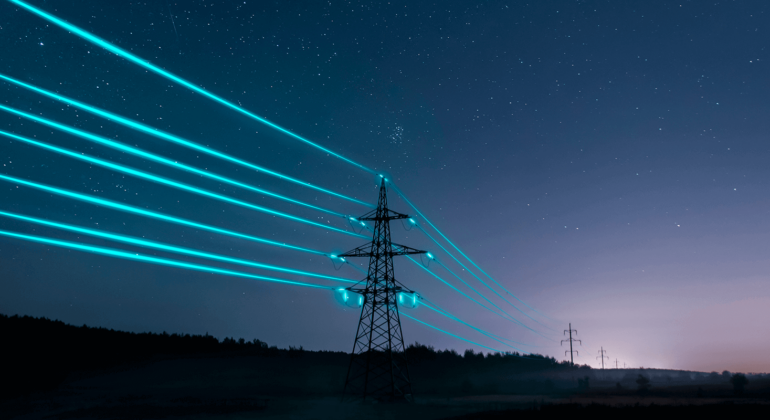It seems that all the buzz of 2023 has been about artificial intelligence (AI). With the launch of ChatGPT last November and other groundbreaking AI tools this year, it is clear why everyone has been talking about this fascinating new technology. As AI continues to develop and progress into an even more powerful tool, discussions on the dangers of AI are also increasing as people start to truly understand the complexity and vastness of its use. Let’s look at some of these concerns and what is being done to address the potential dangers of AI so that this technology can used in the most ethical and efficient ways.
Bias, Ethical Dilemmas, and Decision-Making
A big topic of discussion around artificial intelligence is its potential for bias. If the data sets used to train AI models are biased, then the decisions made by the AI system will also be biased. Because humans are naturally biased, it will be difficult to create a non-biased AI tool. An example of this could be a situation in which an AI system is used to filter job applications based on certain criteria. If the system is trained on historical data that reflects past biases, it may continue to perpetuate those biases by rejecting candidates who don’t fit the mold.
Another dilemma AI may face is the responsibility for its actions. As AI becomes more sophisticated and autonomous, it will become increasingly difficult to trace accountability for the decisions it makes. Decision-making could also be challenging for AI when it comes to complex moral decisions. For example, if an AI-powered car is faced with an unavoidable accident and needs to make a split-second decision – choose between hitting a pedestrian or swerving and causing harm to its passengers – which decision will it make?
This raises ethical questions about the value of human life and the responsibility of AI in life-and-death situations. To prevent these possibilities from arising, the current challenge for AI developers is to program ethical decision-making protocols that prioritize human safety while minimizing harm to others.
Deepfakes and Identity Theft
One of the biggest dangers associated with artificial intelligence stems from deepfakes, digitally altered images and photos that appear to be someone else. Deepfakes are used to confuse viewers and spread false, mis-, and dis-information, typically with malicious intent. To make matters even more vague and confusing, there is currently no federal legislation that addresses the threats that deepfakes pose within the United States. Deepfakes can cause confusion and ruin a person’s reputation. As AI tools strengthen, it will be even more difficult to determine what is real and what isn’t.
Another dark component of AI is the potential for identity theft. There have been reports of scammers utilizing the strengths of AI to steal identities and access sensitive information. This includes scammers recording the tone and pitch of someone’s voice and producing a fake phone call by that person to pry sensitive information from the person’s family. With new tools that allow cybercriminals to obtain confidential information more easily through identity theft, data security must increase exponentially to prevent people from using AI to steal data.
Environmental and Sustainability Concerns
Artificial Intelligence systems require a lot of electricity, which generates a large amount of heat. Because of this, data centers need to find ways to cool down the environment in computing centers, and right now water is a leading approach. According to Microsoft’s 2022 Environmental Sustainability Report, the company experienced a spike in water consumption of 34% over 2021, likely due to AI research and a growing need to cool its data centers. This causes a large environmental challenge for developers and large tech companies, because water is not an unlimited resource. Companies will need to find new ways of developing high-tech tools like AI without creating secondary issues to promote a more sustainable environment for society.
Human and Governmental Regulation
As AI continues to advance, there is a growing concern that humans may not be able to maintain total control over it. This could result in AI making decisions that are harmful to individuals or society as a whole. To prevent this, it is essential for governments to regulate AI and develop laws to govern its use. These laws should establish clear guidelines for how AI can be used and ensure that it is always acting in the best interests of humanity. Additionally, they could establish accountability measures for developers and users of AI to ensure that they are held responsible for any harm caused by the technology.
Last month, the US Congress gathered at an inaugural AI forum to discuss how they might address AI in the future and take initial steps toward beginning discussions on regulating this technology. These discussions will pave the way for future uses of AI in different fields of work and in everyday life.
The Big Picture
Although the unknowns with AI can be scary, its ability to analyze vast amounts of data, make predictions, and perform complex tasks will revolutionize our society in ways it has never seen before. As AI continues to evolve, we can expect it to play an increasingly important role in solving the world’s most pressing problems.
Looking to market your AI technology? Kiterocket collaborates with some of the industry leaders in emerging technologies and stands ready to bring its expertise to your organization. Contact rebecca@kiterocket.com to learn more.


